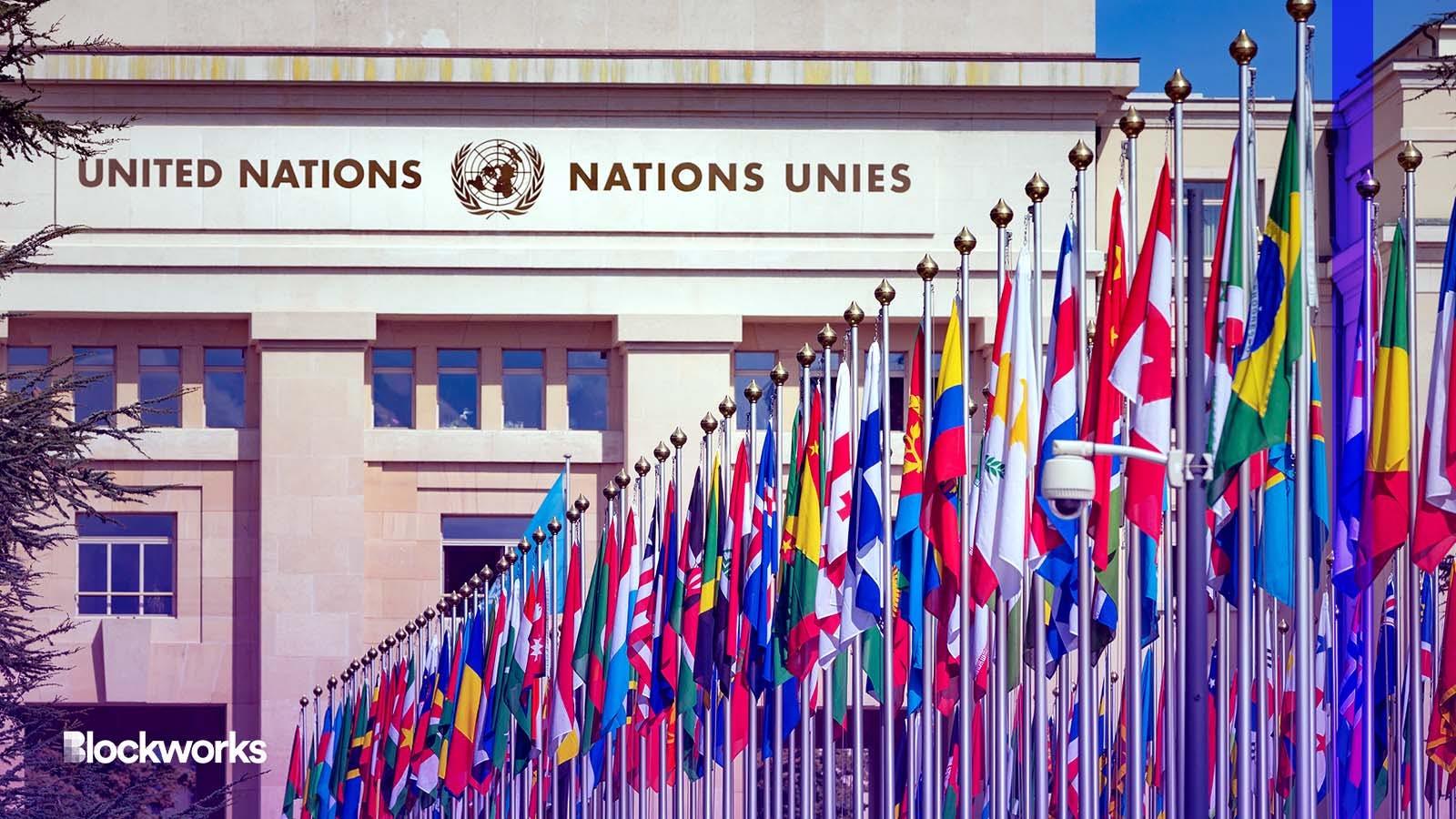UN blockchain standards group to outline best industry practices
The UN’s interest in blockchain comes a day after the EU dropped a Q&A on the sparsely explored concept of Web4

nexus 7/Shutterstock modified by Blockworks
International governance organizations are again showing curiosity around blockchain.
The latest example is the United Nations, which teamed up with the Internet Governance Forum (IGF) and the Government Blockchain Association (GBA) to create a blockchain standards group.
The Dynamic Coalition on Blockchain Assurance and Standardization was approved by the IGF Secretariat on June 1, 2023, according to GBA executive director Gerard Daché.
Daché and Dino Cataldo Dell’Accio, the chief information officer for the UN’s Joint Staff Pension Fund, will lead the coalition.
The coalition will research the blockchain space and its various solutions while collecting input and proposing recommendations to the UN. That process will go toward the creation of best practices and guidelines for a number of different industries that use or are considering using blockchain.
Daché told Blockworks that the GBA’s roughly 50 working groups will be publishing these best practices, including ones for mining, cryptocurrency and decentralized autonomous organizations (DAOs).
Each group their own schedule, which means there isn’t yet clarity on when industry participants can expect guidelines.
Relevant industries being targeted by the coalition include artificial intelligence, communication infrastructure, digital identity, economic development, environmental stewardship and supply chain, according to a Wednesday statement from the IGF.
The GBA will also issue blockchain guidelines for key areas the public sector is responsible for such as voting, healthcare and education.
There will be weekly and monthly meetings for each sector the coalition is trying to standardize.
Daché said the impetus for creating the coalition stemmed from the fact that governments and companies the world over have been interested in implementing their own blockchain solutions. The only problem was they didn’t have the knowledge to “distinguish between legitimate blockchain projects and fly by night schemes.” The coalition’s work will be an attempt to solve this issue.
The UN formally called for the creation of the IGF in November 2005, years before Bitcoin came online, mainly so it could discuss public policy issues relating to the internet.
The UN’s push to impact the development of blockchain technology comes just a day after the EU’s release of a so-called Web4 initiative, skipping over Web3 entirely.
Get the news in your inbox. Explore Blockworks newsletters:
- The Breakdown: Decoding crypto and the markets. Daily.
- 0xResearch: Alpha in your inbox. Think like an analyst.






